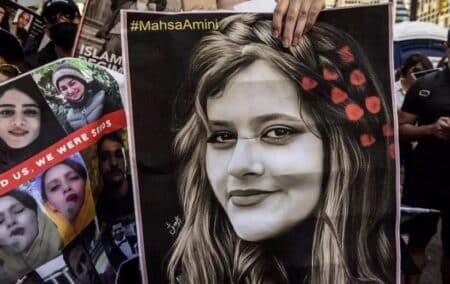South Africa’s new BRICS partner Iran is arresting activists and pressuring citizens not to resume anti-government protests.
Iran is seeking to avoid a new outbreak of civil disobedience around the anniversary of the death in police custody of Mahsa Amini, a 22-year-old woman arrested for allegedly violating Iran’s strict Islamic dress code.
The grievances that sparked the protests haven’t abated, and a resumption of clashes remains possible.
Protesters even called for the overthrow of the clerical leadership, in one of the biggest challenges to the Islamic Republic since its founding four decades ago.
Security forces killed at least 537 people, and 22,000 people were arrested, according to Iran Human Rights, an Oslo-based group.
The recent protests have occurred across Iran, including in Kurdish areas, which in 2022 saw some of the most violent clashes. Many of the detained are women and students.
Authorities have raided the homes of family members of protesters killed in the unrest, ordering them to sign pledges not to join new demonstrations.
Nearly 3,000 students have been summoned to disciplinary committees at universities and pressured to promise that they won’t engage in protests, said Skylar Thompson, the senior advocacy coordinator at Human Rights Activists in Iran.
In Gilan province, 11 women’s-rights activists and one man were arrested in raids on Wednesday.
Sadeq Rahimi, deputy chief of Iran’s judiciary, said security and intelligence services are monitoring potential protesters. Any resumption of protests will be dealt with harshly, participants will be prosecuted and no pardons will be granted, he said, according to Iran’s official judiciary news service Mizan.
Many protesters who were arrested in last year’s unrest have been granted pardons since February, in a move by the government to keep the protests from recurring.
[Photo: CC by Mandy News]

